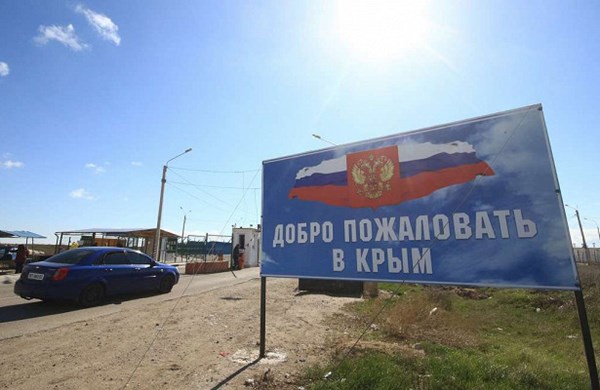Crimean authorities: Water found under the Sea of Azov is not suitable for consumption
Russia's plan to use fresh water supplies found under the Sea of Azov to supply Crimea failed. The water is unsuitable for consumption, said the Head of Crimea, Sergey Aksenov.
"There is some fresh water there," Aksenov said.
He specified that the water reserves are not located very deep, and it would be easy to extract them. However, there is a serious problem. The water contains a lot of minerals.
"How can it be used? It has to be cleaned up," Aksenov said.
He added that water treatment plants in Crimea will not be able to cope with 1-2 million cubic meters of water, which are needed daily by the peninsula.
"We will have to forget about this project," said the Kremlin-appointed official.
During the 7 years of Crimea’s annexation, Russian has not been able to provide sufficient water supply for Crimea. The Russian authorities have been depleting the underground water reserves on the peninsula, which lead to irreparable consequences. In some areas the soil has become highly saline, uninhabitable and agriculturally unsuitable.
Despite this, Russia continues to amass its military on the peninsula captured from Ukraine. This causes the remaining water supplies to disappear even faster. Several cities on the peninsula receive fresh water on schedule for several hours in the morning and in the evening.
In February 2014, armed people in uniforms without insignias appeared in Crimea and captured the Supreme Council of Crimea, the Simferopol Airport, the Kerch ferry crossing and other strategic objects, and prevented the Ukrainian army from taking action. Initially, the Russian government refused to acknowledge that these armed people were Russian soldiers, but President Vladimir Putin later admitted it.
On 16 March 2014, a referendum on the status of Crimea was held in Crimea and Sevastopol, in which the inhabitants supposedly voted for the peninsula to become part of Russia. The outcome of the so-called referendum is not recognized by Ukraine, the EU or the US. On 18 March, Putin announced the “annexation” of Crimea to Russia.
International organizations have declared the annexation illegal and condemned Russia’s actions. Western countries have imposed economic sanctions on Russia in connection with the annexation. Russia claims to have “restored historical justice”. Ukraine’s parliament, the Verkhovna Rada, declared 20 February 2014 the start of Russia’s temporary occupation of Crimea and Sevastopol.
